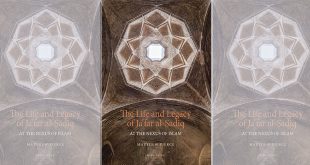The international Conference titled “Scriptural Readings and Reasonings: Philology and Religious Encounter in Medieval and Early Modern Times” will be held on 9 to 11 October in University of Copenhagen, Faculty of Theology.
The international Conference titled “Scriptural Readings and Reasonings: Philology and Religious Encounter in Medieval and Early Modern Times” will be held on 9 to 11 October in University of Copenhagen, Faculty of Theology.
At this conference we want to discuss and celebrate philology as a tool of religious encounter. ‘Scriptural Readings – Scriptural Reasonings’ refers to philological practices, i.e. establishing meaning through a variety of grammatical, lexical, and historical exegetical techniques, and the modes of rational argument – reasoning – saturated with these practices.
The premise of this conference is that, as philological practices are essentially comparative, they implicitly contribute to complicated identities. Philology is an important tool in the process of religious differentiation. But embedded in philological practices are also many points of common origin, shared methods and opinions, and values embraced across religious divides.
The conference is organized in collaboration with the NYUAD Humanities Research Fellowship for the Study of the Arab World and the ERC Synergy Project ‘The European Qur’an. Islamic Scripture in European Religion and Culture, 1150-1850’.
Important Data
Time: 9-11 October 2023.
Venue: University of Copenhagen
Registration: https://ucph-ku.zoom.us/meeting/register/u5YtdumoqzMjGNJYVPd80_5EcBRrT2mghCcu#/registration.
 Ijtihad Network Being Wise and Faithful Muslim in the Contemporary World
Ijtihad Network Being Wise and Faithful Muslim in the Contemporary World
